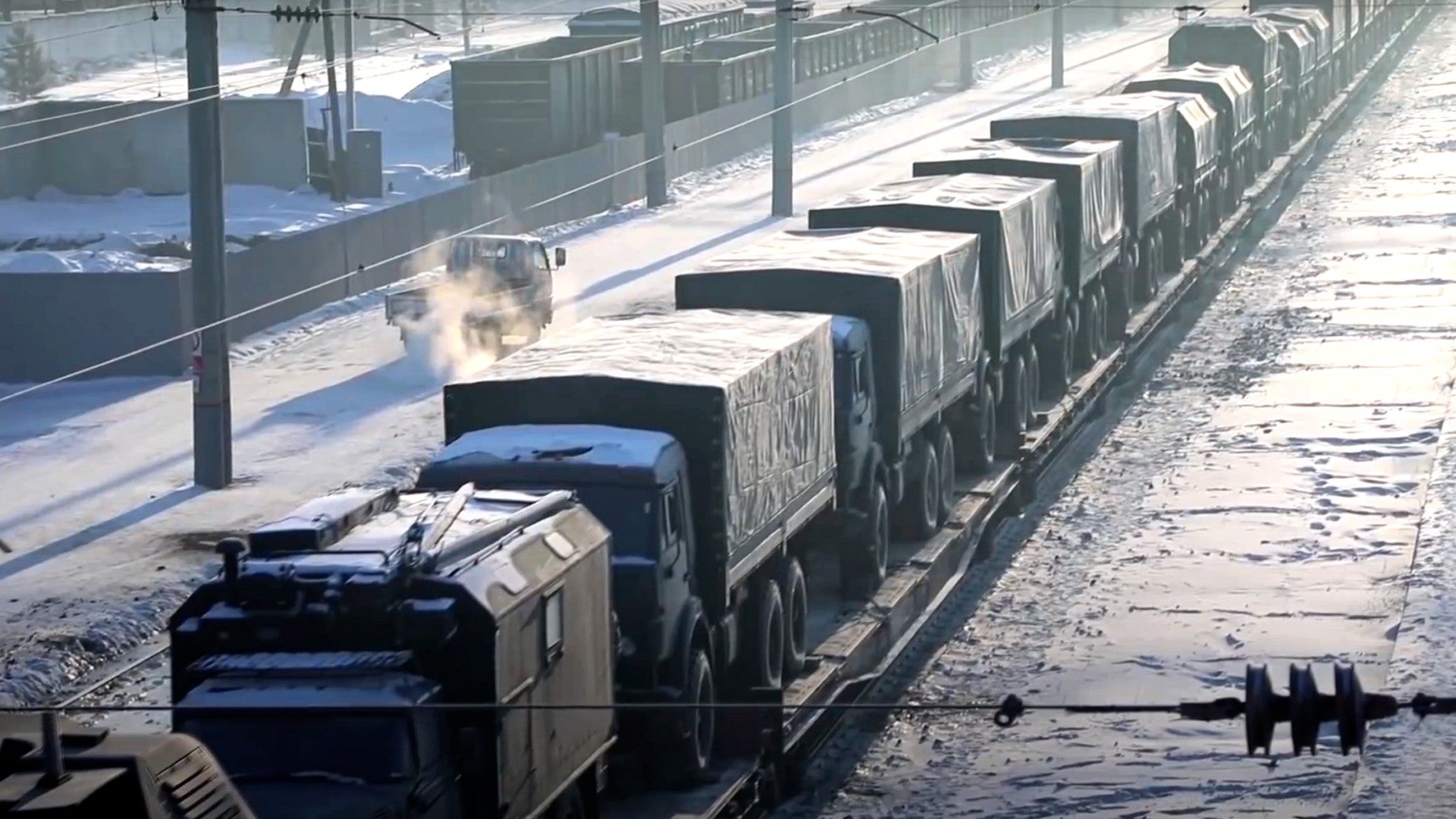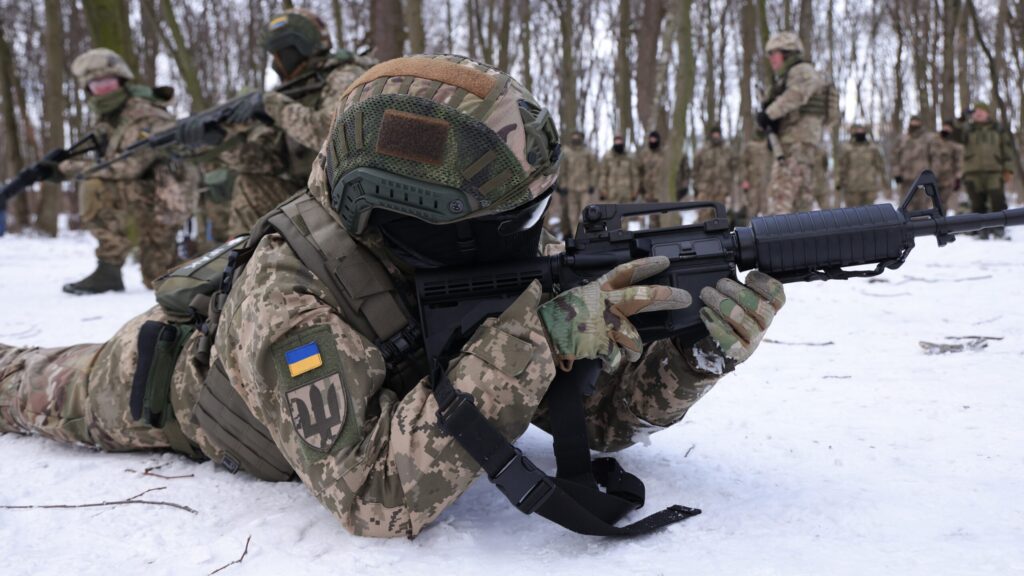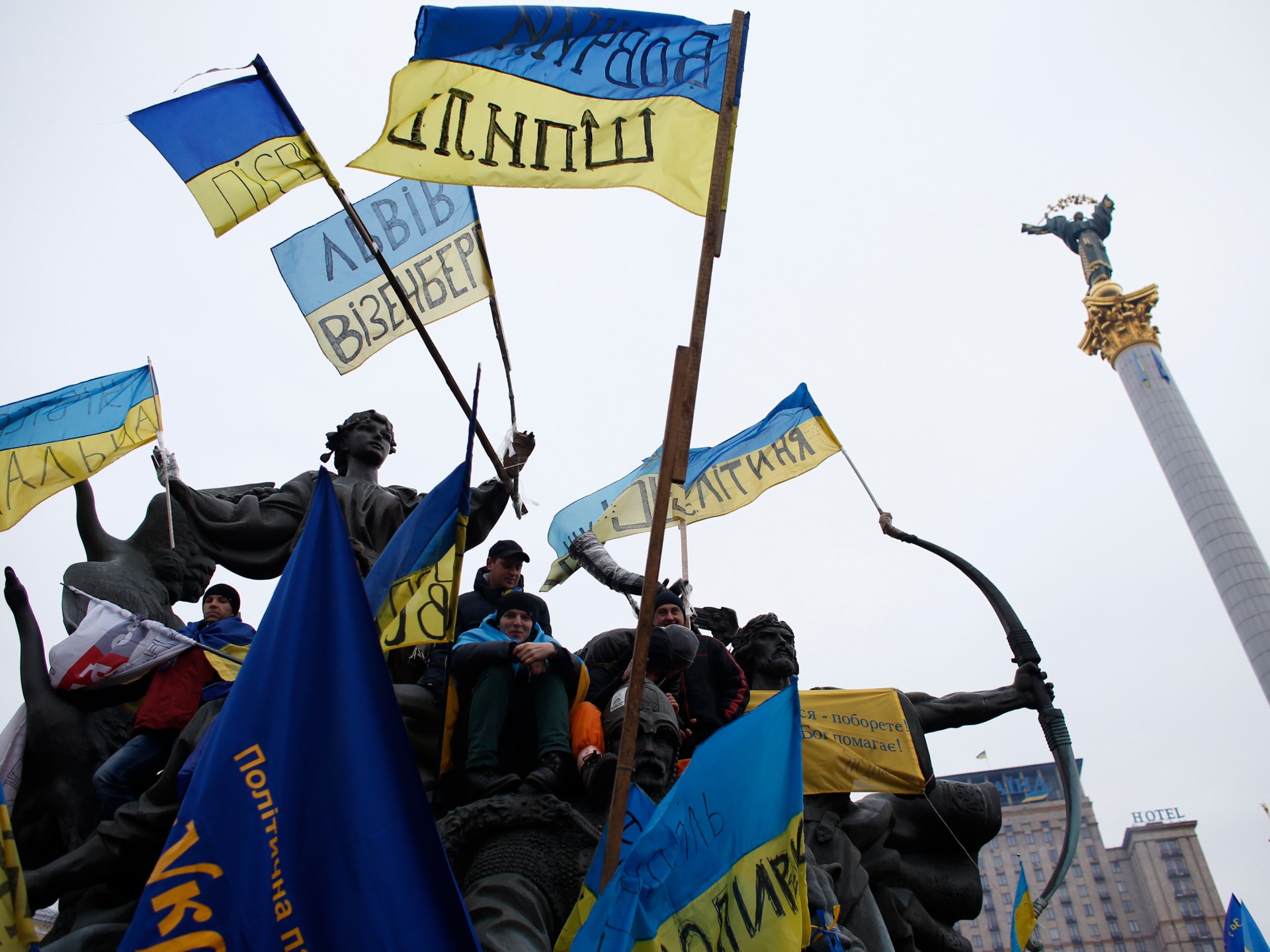
Russia says US ignored its security demands over Ukraine
Vladimir Putin told French President Emmanuel Macron that the West has failed to consider Russia’s key conditions.
 www.thenational.scot
www.thenational.scot

 www.thenational.scot
www.thenational.scot
I suspect he wants NATO non-expansion into Georgia and Ukraine as the top points, with everything else as a secondary consideration. I wouldn't be surprised if he wants to re-engage the US and NATO on general talks about mutual disarmament and observation protocols. Ukraine NATO membership is already highly unlikely, at least in the forseeable future, and he wants something binding to that extent.I agree it's more posturing at this point however the Russian opening gambit was so impossible for NATO, that it's difficult to see it as a basis for any sort of negotiation.
Feanor, what concessions do you think Mr Putin really expects? (I deliberately avoided the word 'wants')

A taste of the same medicine for Moscow’s cyber team? I am sure Warsaw is pleased to play a small role in providing some facilities to front this move. Moscow itself has no immunity to such deniable cyber attacks, when the next phase begins.Belarus railway network just got hit by a cyber attack, the attackers are demanding that Lukashenko stop hosting the Russians. It's alarming that a Polish funded TV channel is providing a platform for the hackers to make demands
Cyberattack Targets Belarus' Rail Network To Slow Flood Of Russian Forces Into The Country
The cyberattack was claimed by a non-state actor and underlines just how complex the cyber battlefield is becoming.www.thedrive.com
Thanks Feanor.I suspect he wants NATO non-expansion into Georgia and Ukraine as the top points, with everything else as a secondary consideration. I wouldn't be surprised if he wants to re-engage the US and NATO on general talks about mutual disarmament and observation protocols. Ukraine NATO membership is already highly unlikely, at least in the forseeable future, and he wants something binding to that extent.
I think you know is is a fairly unlikely scenario. It would require a fundamental change either within NATO or within Russia. A binding never arrangement might be very simple. A document that simply says that the US promises to veto further NATO expansion into the former Soviet states. The question of course is what guarantees could be asked. Perhaps the implicit blank check on Russia's part to strike at Ukraine if the US violates the document can serve as the guarantee? It's one thing if the position of the US is "anyone can join NATO and we will support them". It's another thing if the position of the US "we promised not to do this but we're doing it anyway".Thanks Feanor.
I'm not sure how one organises a binding 'never' arrangement? 'Never' is a long time, heck, in 15 years time Russia and NATO might be chums.
Maybe. Personally I hope so. There's ~3.5 million people there who, for whatever reason, have made a choice to stay. They're serving the republican armed forces, they're choosing to live under the authoritarian (far more so then Russia's) government of the breakaway regions, under regular Ukrainian artillery shellings. They've more or less thrown their lot in with Russia. In my opinion Putin owes it to them to do something to correct their situation. And given the carnivorous nature of Ukrainian politician's statements regarding plans to "reintegrate" the Donbass, abandoning them isn't a good choice. But personally I'm not sure. Russia didn't want to take the Donbass in 2014 when it could have been done to any arbitrarily drawn boundary, be it the administrative border or a convenient geographic feature. If the purpose of the breakaway regions is to prevent NATO membership, they can do that just fine in their present state. And with binding guarantees of non-membership this would be even less likely. The one thing is that the front-line in these republics constantly eats resources, and the fact that the front line is so close to major urban centers creates problems for regular economic activity there.I can see that mutual disarmament would be of interest to both sides.
What about the DPR and LPR? Surely Mr Putin would be looking at some changes to their status?
I also suspect, that Ukraine and threat of invasion is just the way to start negotiations. The secondary things, stated in US and NATO letters are probably the main things that Russians want to discuss. As on one hand it will give them max output (ask maximum at the beginning) and will show globally and locally (mainly) that we have some muscles and Putin is a strong figure on the geopolitcal arena, Europe is weak, and on other hand it will give the room for US and NATO to agree to the proposal without looking like they lost (invasion prevented, everyone is happy).I strongly suspect this is untrue. Russia has drawn up troops and then drawn them back down many times in the past 8 years as a way of pressuring Ukraine. Russia is just as capable of backing off now as it has been at any point in the past and no imaginary embarrassment would prevent that, if that is what gets decided upon.
I think there are two key questions. Is Russian increase a response to their perception of a planned Ukrainian offensive? If yes, then a drawdown is practically inevitable once it becomes clear that no offensive is forthcoming (assuming no offensive is forthcoming). If no, then what is Russia's objective? I suspect that an invasion in and of itself is not the goal, otherwise there wouldn't be this giant diplomatic circus, and Ukraine wouldn't be given such a vast amount of advance warning (giving the west time to throw weapons into Ukraine and to coordinate a political response against the invasion). Russia has clearly shown in '08 and '14 that the government is willing to act rapidly and decisively, with international implications. This time the actions are very slow and deliberate. It's possible the objective is to get concessions on the points presented to the US. They can't reasonably expect to get all of what they asked for, so what is their realistic position that they're willing to settle for? And will they strike if they don't get an acceptable response?
/cloudfront-us-east-2.images.arcpublishing.com/reuters/ORTNDUEF3BMWDCWQOHG42LGBSU.jpg)
/cloudfront-us-east-2.images.arcpublishing.com/reuters/YIWGLYU435MKJIAI2L77S67RN4.jpg)
Obviously... It's a tactic which has been practised for centuries. Putting pressure on an opponent [hoping it influences his behaviour] and demonstrating what will come next if talks fail.I also suspect, that Ukraine and threat of invasion is just the way to start negotiations.
Indeed.Obviously... It's a tactic which has been practised for centuries. Putting pressure on an opponent [hoping it influences his behaviour] and demonstrating what will come next if talks fail.
I have been listening and learning alot from hereObviously... It's a tactic which has been practised for centuries. Putting pressure on an opponent [hoping it influences his behaviour] and demonstrating what will come next if talks fail.
Depends on the circumstances but in general smaller or less powerful countries have to form alliances/partnerships; have to acquire some level of deterrence;; have to engage in dialogue/diplomacy; have to avoid hubris and overconfidence and require a clear appraisal and understanding of what they can and can't achieve on their own.My question is at what point can a middle nation like Ukraine and Australia stand up and say Fxxx off
Well said.One does not go into negotiations with "reasonable requests"; that is not a negotiation, that is a meeting. The Russians wants to establish a position of strength, and making unreasonable demands, threats of war, just to test how the West and NATO reacts. If your threats are not real, it won't work. There are also pressures from internal factions that Putin wants to keep a lid on.


The West and NATO does not owe Ukraine anything, much less the post Cold War disarmament. Western support of Ukraine (i.e. the training, the flights carrying missiles) is one of expediency, which is countering Russia, not charity or some undeclared love for Ukraine.Perhaps Ukraine does have a bit of an argument in thinking that NATO and the west would assist in their defence if we asked them to / made them give up their ex USSR nuclear stockpile.
That was in the 1990's and involved the cooperation of Russia [it had no major objections]; no way the NATO would have come reached such an agreement with the Ukraine. It would have been a political minefield given the geo strategic conditions during that period. Also. the potential for trouble with Russia was not something which was factored in by the Ukrainians in the mid to late 1990's.Perhaps Ukraine does have a bit of an argument in thinking that NATO and the west would assist in their defence if we asked them to / made them give up their ex USSR nuclear stockpile.

This seems like mismatched expectations. The West is good on the rhetoric side of things, but have neither the interest or patience to guide any country to democracy, Ukraine or Russia.''From the Russian perspective, what happened in Ukraine after the Maidan revolution has also revealed the hypocrisy of the West. Despite its persistent rhetoric on democratic values, Brussels and Washington have been turning a blind eye to a multitude of factors that prevented Ukraine from becoming a role model for Russians.
Before all this unpleasantness started it was generally felt that Ukrainian membership was a matter of when; not if. As it stands however NATO has nothing to gain from granting Ukraine membership; it might even be seen by Russia a casus belli for war. If things get worse in the coming years it will also be interesting to see what Sweden and Finland do with regards to membership.Personally, I don't think NATO is interested in bringing Ukraine into the alliance, if they applied.
He's got the KGB, the guns, the army, and Putin's support. He's quite capable of putting any protests or uprisings down. The only way he could be deposed is if the army turned on him and the KGB.I think Belarus getting involved in a Russian war would go down badly with the general public. They already want him out, so having Belarusians get involved in an invasion of Ukraine and all the sanctions that would come with it could trigger mass protests again.
